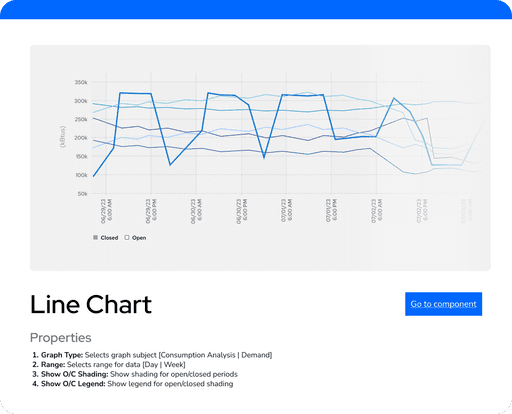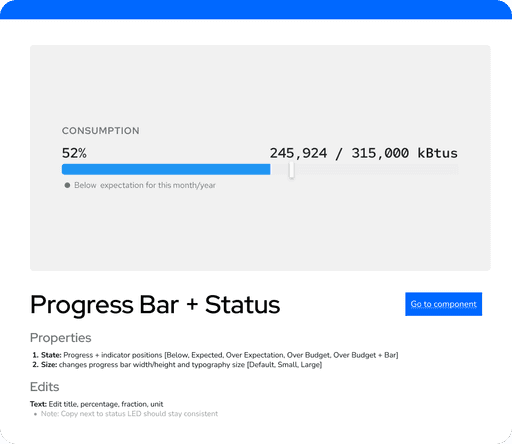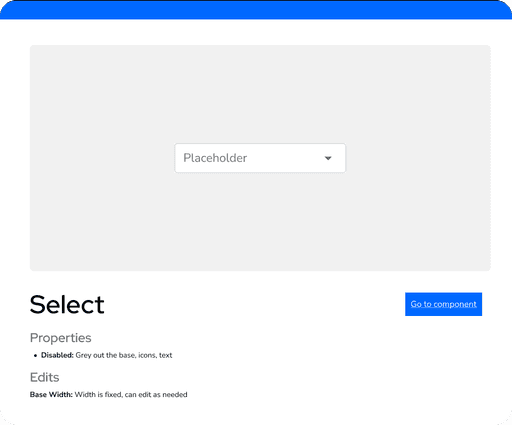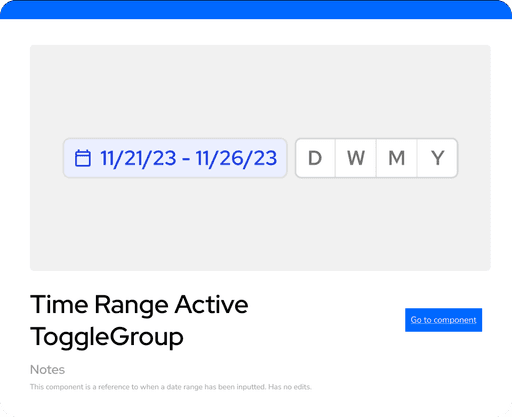For privacy concerns, the full details for this project can be accessed with a passcode.
See Full Case Study
About
I worked on the Abound design team as part of the Digital Foundry at Carrier. Abound product is a B2B application that helps maintain safer, healthier, and sustainable buildings by providing data visualizations and insights on air quality, energy performance, carbon emissions, and green building standards.
What I Did
Improved Abound's design system by developing and testing new components along with comprehensive documentation, and leading the adoption of the new design system to reduce product development time and inconsistencies.
Process
Audited design files for outdated components and potential new patterns
Built over 50 patterns for charting, data visualization, interactions, and more. Tested components for responsiveness, accessibility, and brand consistency
Created comprehensive guidelines to help designers navigate, use, and maintain the system
Built 2 new features and research materials
Process
Designed wireframes, mockups, and materials for user research
Led consistent adoption of new design system across features
Iterated based on feedback from team and evolving business requirements
What I Learned
Designers as users, balancing rules vs. creativity
Since the designer was the primary user, I made sure to get continuous feedback from them. I had to keep asking - how can we confine decision-making to create consistent, quality designs, while still giving autonomy to the designer to use their eye and expertise? We should be able to trust the system but in the end it’s the people who do the designing.
Navigating complexity through design
The team was constantly faced with complex terminology of equipment and devices, each with large sets of data points to work with. It was important to stay focused and ask good questions. We often designed on unsure and shifting information. It was the process of designing - making something tangible and showing to others - that got questions answered. Through continuous experimentation and mistakes, we’d build up the correct mental model to design from.
Proactively solving problems
My team members were all smart, curious, driven to solve the complex problems that arose from their everyday work. I learned a lot from them and began to take leadership on advocating the new design system. Rather than voicing complaints, I’d show how issues might be addressed through real examples.
Overall... I learned a lot about the process of creating, maintaining, using design systems out in the wild, as well as how to build a strong community.






















